The Colo Historical Association and Kelsey Reed, manager of Niland’s Café and the Colo Motel, are looking toward the future while celebrating 100 years of the Reed’s Standard Service Station and the Reed/Niland Corner.
The Reed/Niland Corner sits at the crossroads of two transcontinental highways, in the small town of Colo, Iowa. The corner represents the history of auto transportation in the United States of America. This place is where the Lincoln Highway (the West-East motor route officially announced in 1913), and the Jefferson Highway (the North-South motor route officially announced in 1915) meet, join, and eventually separate in the center of the United States.
The Beginning
In 1923, a soft-spoken, kind-hearted, generous man, Charlie Reed needed to supplement his small farming income to support the farm and his mother, whom he cared for until she passed away at 95. He saw an opportunity where the Lincoln and the Jefferson Highways meet, which happened to be at the SE corner of his property. Charlie started selling gas to travelers and set up a small gas station on his property.
He called his station the Lincoln-Jefferson Station (the L & J for short). It was not long before Charlie allowed travelers to camp on his land and to make them more comfortable, he added several “cubby hole” tourist cabins. To feed all of the travelers, Charlie soon started to sell sandwiches and cool beverages next to the small station. There is little chance that Charlie knew at the time that he had just started what was to become known as the traveler’s “one stop.” The corner may hold the claim that it was the first one-stop on the Lincoln Highway in Iowa, and it quickly became one of the first that was open 24 hours as well.
The Gas Station
The L & J Station relocated to the west side of the one-stop in 1930 (the original location was east of the current motel). Charlie renamed the station Reed’s Standard Red Crown Service Station. The architect of the station is unknown but the design shows design details of the Arts & Crafts movement of the early twentieth century with its awning and pillars.
Charlie’s gas station sold gas, oil, tires, batteries, cigarettes and cigars, soda pop, and candy and until 1940, the station offered oil change and tire repair services.
According to Herb Owens, who interviewed Charlie for the Des Moines Tribune in 1952, the station employed 11 people besides Charlie, had four pumps and served as a bus station for two major bus lines, the Greyhound and the Jefferson. The station was open 24 hours and boasted of a TV in the waiting room with two old leather Morris chairs. Owens says that Charlie liked to hang out at the station watching football or wrestling on the TV or playing checkers at the station on a Sunday afternoon.
Charlie Reed could be seen at the station most days until he passed away on June 26, 1967, at the age of 91. The Station closed and has not been open on a regular basis since then.
The Café
In 1926, Charlie decided to build a building for his lunch sandwiches and located it across from the L & J Station on the south side of the Lincoln-Jefferson Highway and fittingly called it, the L & J Café. Charlie’s nephew, C. Reed Niland helped Charlie run the station and C. Reed’s wife, Florence, ran the café. In 1930, when Charlie moved the Standard station to the west, he relocated the café to the north side of the road at the present-day location, and he enlarged the kitchen and seating areas. He likely renamed the cafe to Niland’s Cafe at this time or some time in the early 1930s. The restaurant would continue to go through small size changes over time.
The café was renamed Niland’s Café. In 1932, C. Reed Niland passed away unexpectedly so another one of Charlie’s nephews, Claire Niland, helped at the station and Clare’s wife, Margaret, ran the café. Later, the husband/wife team took over the café. In 1952, Herb Owens reported that the couple still ran the café and described that there was, “a counter, booths, and a 100-selection jukebox; seven people were employed, and an extra girl worked in the summer.” The café was run by the Nilands until their son John took over and decided to close the café in 1995.
The Motel
The motel also offered a shower house and electricity before other motels along the highway did. Around 1947, Charlie decided to expand the campground and sold the “cubby holes.” He built 21 heated cabins for year-round use. Herb Owens reported in 1952, that there were two chambermaids employed and that Charlie, “loved to handle the rental of the motel space and that repeating guests loved him…he would always give them extra bars of soap and twice as many towels as they needed.”
The Corner
In 1930, when the Jefferson Highway (US 65) was paved from the corner to the north, a sweeping curve was built on the north side, or backside, of the building. This curve created a triangle form of roadways around the buildings. The corner or, “the operations on the triangle,” as Owens called it, had become known as the Reed-Niland Corner. Three generations of the two related Colo families had served auto travelers for more than seventy years because a small, quiet man needed to supplement his income and in doing so had discovered that he enjoyed the interaction and service to others.
Keeping the Historic Corner Historic
In 1995, the Reed/Niland Corner became the property of the City of Colo. The Colo Development Group was formed and appointed to plan a renovation to preserve the history of the corner and plan for the operation of the café and motel. A Des Moines architectural firm was hired. It was decided that the station, the café, and the motel would be restored to a 1940s-1950s design. A pedestrian walk was added to the corner with several interpretive signs to tell the Reed/Niland story. The project cost nearly $1 million including $663,000 in grant funding from the Iowa Department of Transportation and Federal Highway Administration’s Transportation Enhancement Funding, plus about $270,000 in local donations.
Reed’s Standard Service Station and Niland’s Café were renovated in 2003, and the motel finished renovations by 2008. You cannot get gas at Reed’s but it is now a museum outfitted with vintage Red Crown gas pumps, the original cash register, and other small items left from the working station. Signs for the bus station and the historic Lincoln and Jefferson Highways can be found inside. The station museum was only open to visitors by request or during special events until recently. Several bus tours and many visitors from nearby and abroad have stopped by the restaurant and received a special tour of the Station.
The Future
The Reed-Niland corner is not currently on the Register of Historic Places. With the rich history and significance as a one-stop and unique crossing of the Lincoln and Jefferson transcontinental highways, there is a real possibility for a listing in the future.
Early in 2022, the Reed Station was opened to visitors by the Colo Historical Association as their local history museum. The Association’s main focus is displaying the history in and throughout Colo including but not limited to Lincoln & Jefferson Highways, the railroad, the Reed-Niland Corner, and all of the local Colo history. The following is a statement from the Association:
“With the Reed-Niland Corner being a complete one-stop complex left in the Nation along the Lincoln Highway, the museum has been pleasingly overwhelmed with the number of visitors and their wonderful comments and support for having the Station opened to view, not only for the station history and artifacts but those of the Lincoln and Jefferson Highways, Niland Café & Colo Motel, the nearby railroad and our vast local Colo history!”
“Each month we have several visitors at the Station from all over Iowa. Many also visit Niland’s Café next door. We have had several visitors stop as they pass through, traveling the Lincoln Highway as a specially planned trip. The Station had many out-of-state visitors in June as we hosted a food stop for the Jefferson Highway Caravan as they traveled to their annual conference in Mason City, Iowa. As the new school year approaches, the Historical Association will be reaching out to our local schools to schedule tours to share with the younger generation the most interesting history and stories from the past!”
Kelsey Reed (no relation to Charlie) holds the current lease for managing Niland’s Café and the Colo Motel. Kelsey says that it was a fluke that she found the management posting on Facebook and that she was only expecting to be the manager of a restaurant where the menu was already set, the employees in place, and building repairs were not her responsibility. She was excited when she found out that she could make her own menu, set her own hours and make the changes she sees to become successful. Kelsey had run her own restaurant in Baxter, Kelsey’s Kitchen, for two years and didn’t want to close that location, but managing two restaurants was not an option for a single mother of a ten-year-old boy, Jaxon.
Kelsey said that for the restaurant, she had to do some deep cleaning, a slight remodel and update the wiring when she took over management. She is a bit frustrated going into the heated days of July with only air conditioning in the dining room. The windows of the building are very old and there is likely no insulation, so the kitchen can be unbearable on these warm summer days. She found two experienced cooks John Fritz (retired owner of the Country House) and Jessica McKinney who have worked as a team with the menu and processes. Travelers can expect a traditional homemade dining experience that includes homemade pies and hot beef sandwiches. Reed would also like everyone to know, “I have had great support from the community and welcome any and all ideas to continue to make the business successful.”
The motel’s six rooms rent out per night, week, or month. Reed says that she is almost completely booked out until winter with many of her customers being construction workers, migrant workers, and travelling nurses. Additionally, the City of Colo manages four apartments on the corner.
100 Years of the Reed-Niland Corner Celebrations
To celebrate the 100 years since Charlie Reed began serving gas to travelers on the Lincoln and Jefferson Highways, the Colo Historical Association hosted an open house at the Reed Station Museum in June. Visitors ranged from local citizens to a caravan of motorcyclists who took cover under Charlie’s awning and visited with the historians.
I gathered a great deal of historical information from the museum and was shown the curious “bat” the station attendants used for protection (a deer’s leg fashioned with a handle for “handling”). My husband and I also frequented Niland’s Café for the first time and I ordered my standard café order of a hot beef sandwich and slice of pie. It was the best hot beef sandwich I have ever had, and the pie was great too!
No one can say that Kelsey Reed is not on board with celebrating the history of the Reed-Niland Corner. From the photographs, she looks at every day on the walls of the café to the postcards she sells and the celebration that she has planned for the corner on Saturday, August 5th. Reed’s Service Station Museum will be open as well.
The celebration will feature a band from noon until three and food specials outdoors as Charlie did back in 1923. They’ll be slinging burgers and hot dogs in addition to the regular menu. The kitchen closes at 8 p.m. and the bar will remain open until 11.
The Colo History Museum/Reed Station is open the last Saturday and Sunday of every month from 10-2 and for special events.
Niland’s Café and the Colo Motel are located at 24 Lincoln Hwy in Colo.
Café hours May 1 – Oct 31: Tues-Fri 11-8, Sat 8-8, Sunday 8-2 , Nov-April closes, at 7 p.m.
Morel rooms can be reserved in advance by calling 641-377-3662.
Nearby recreation can be found at the Colo Bogs Wildlife Management Area less than a mile to the east on the Lincoln Highway Heritage Byway, and at Story County Conservation’s 445-acre park Hickory Grove Park which includes a 98-acre lake featuring fishing, swimming, canoeing, picnicking, and camping.
Thank you to the Colo Historical Association for the history and to Herb Owens, for the article he wrote in the January 25, 1952, Des Moines Tribune.

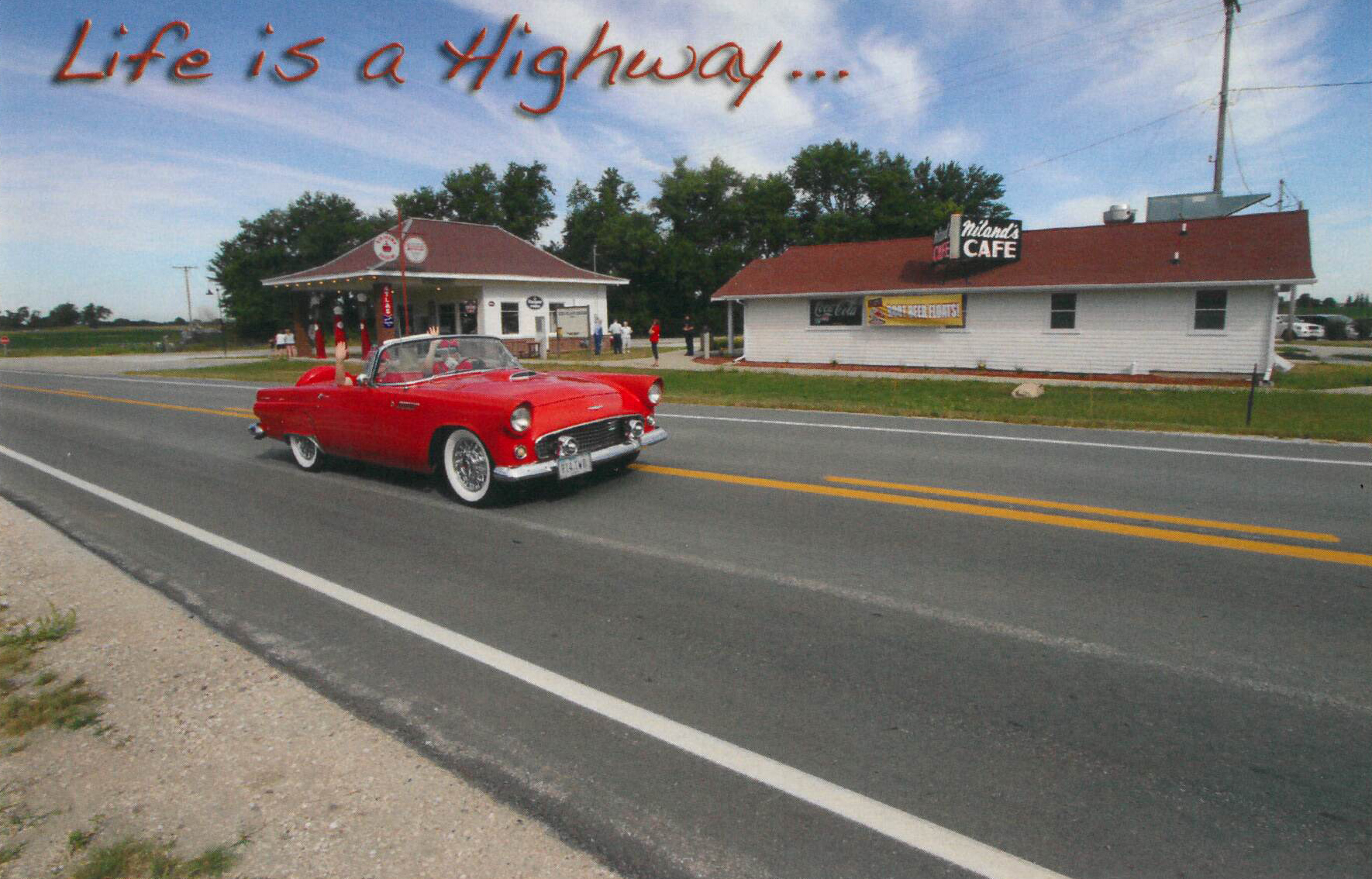
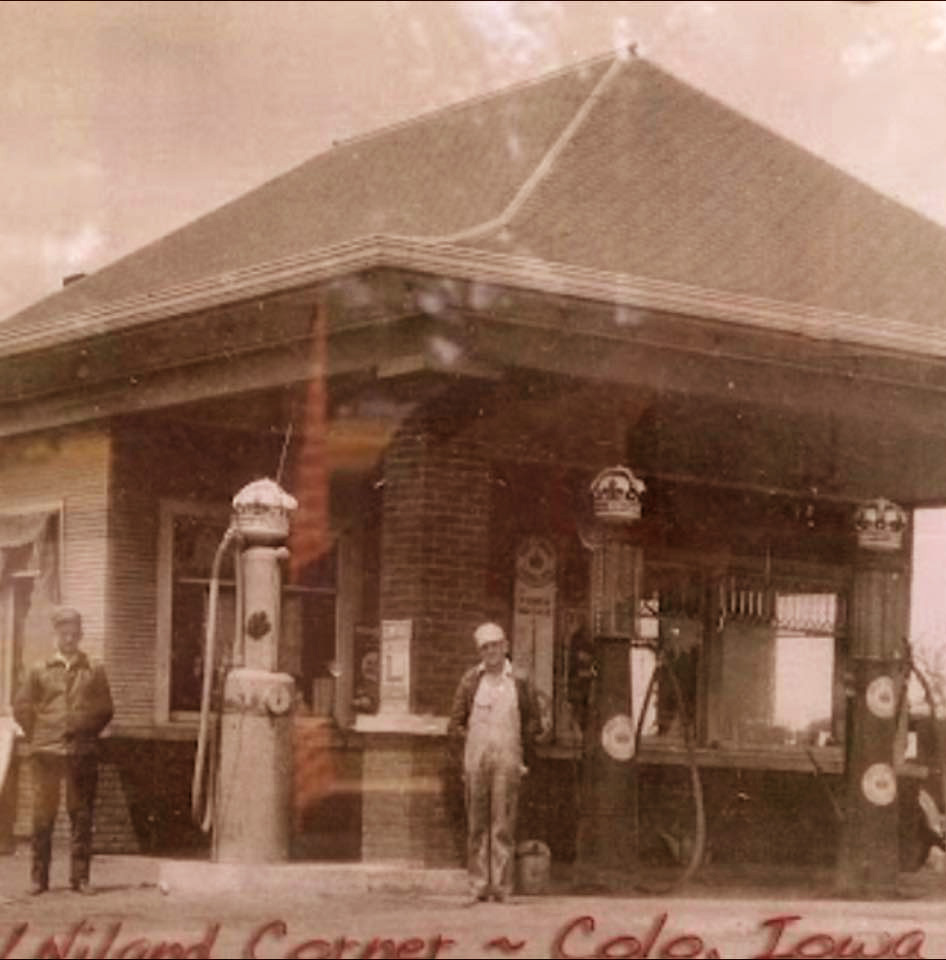
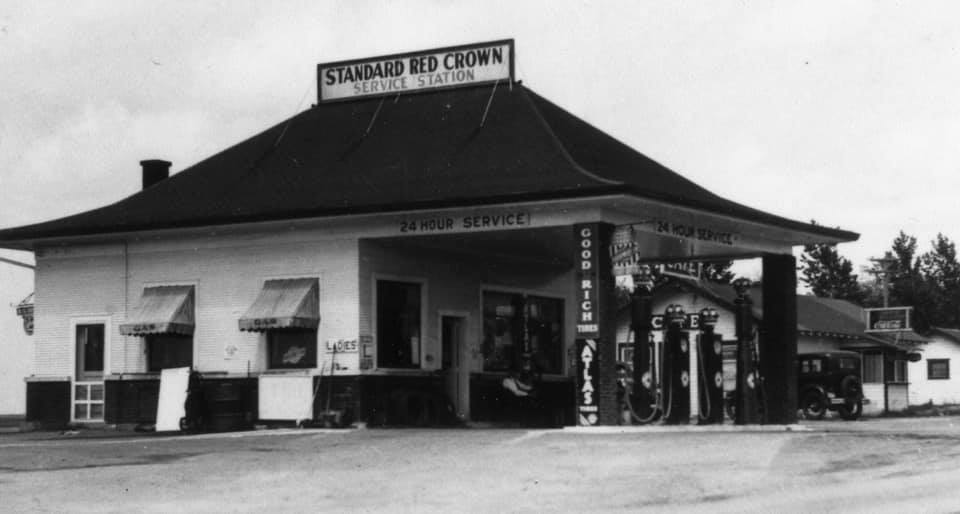
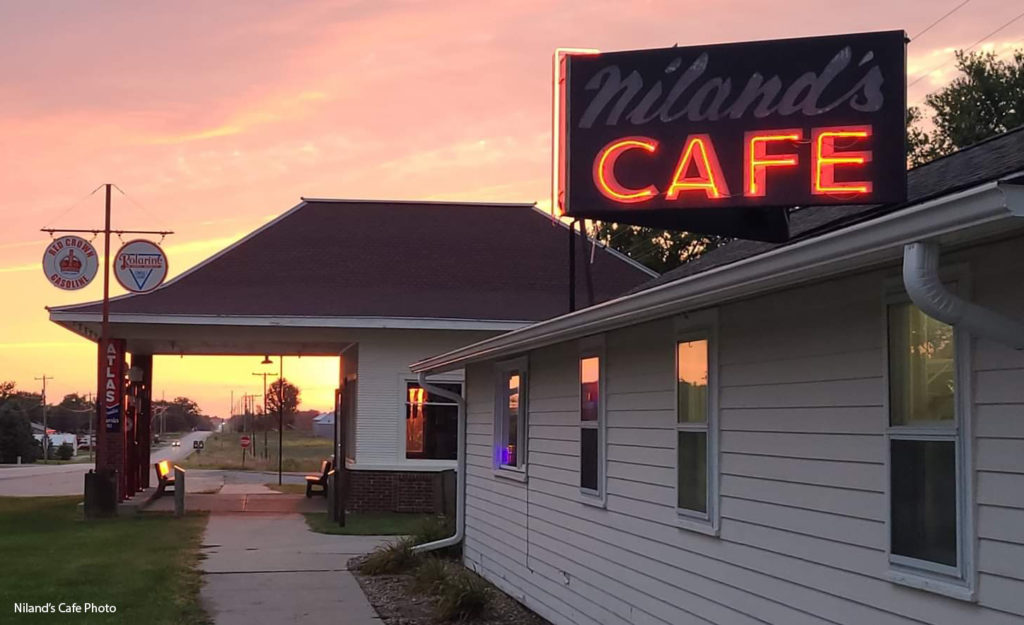
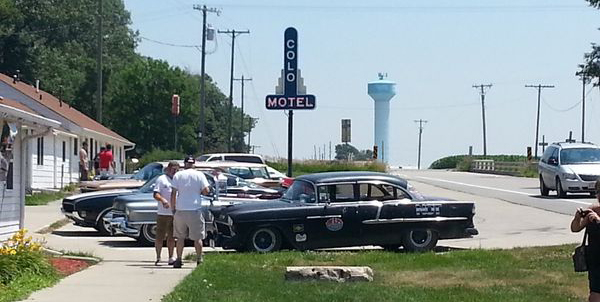
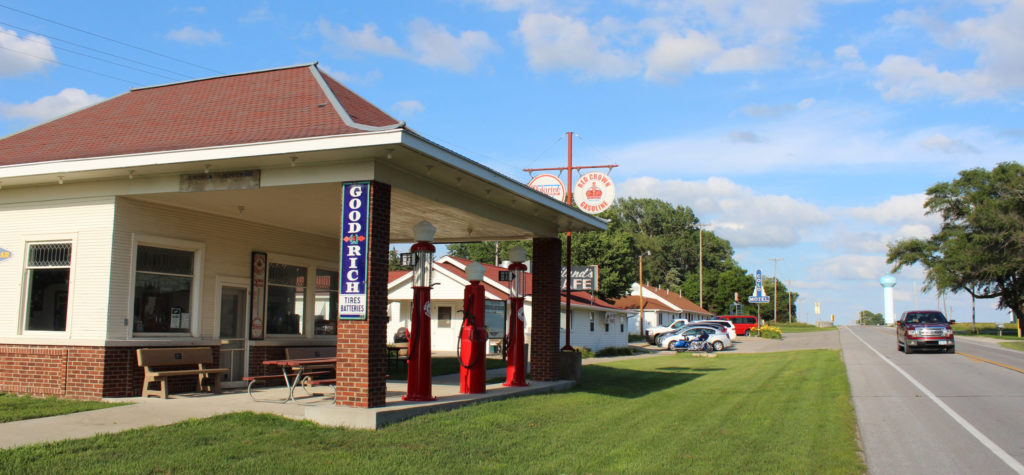
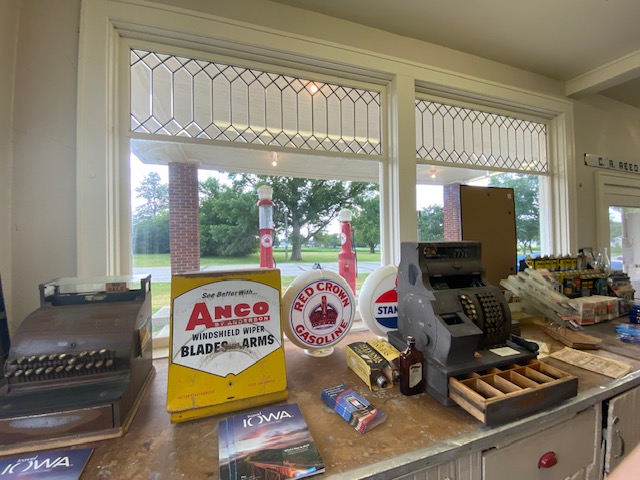
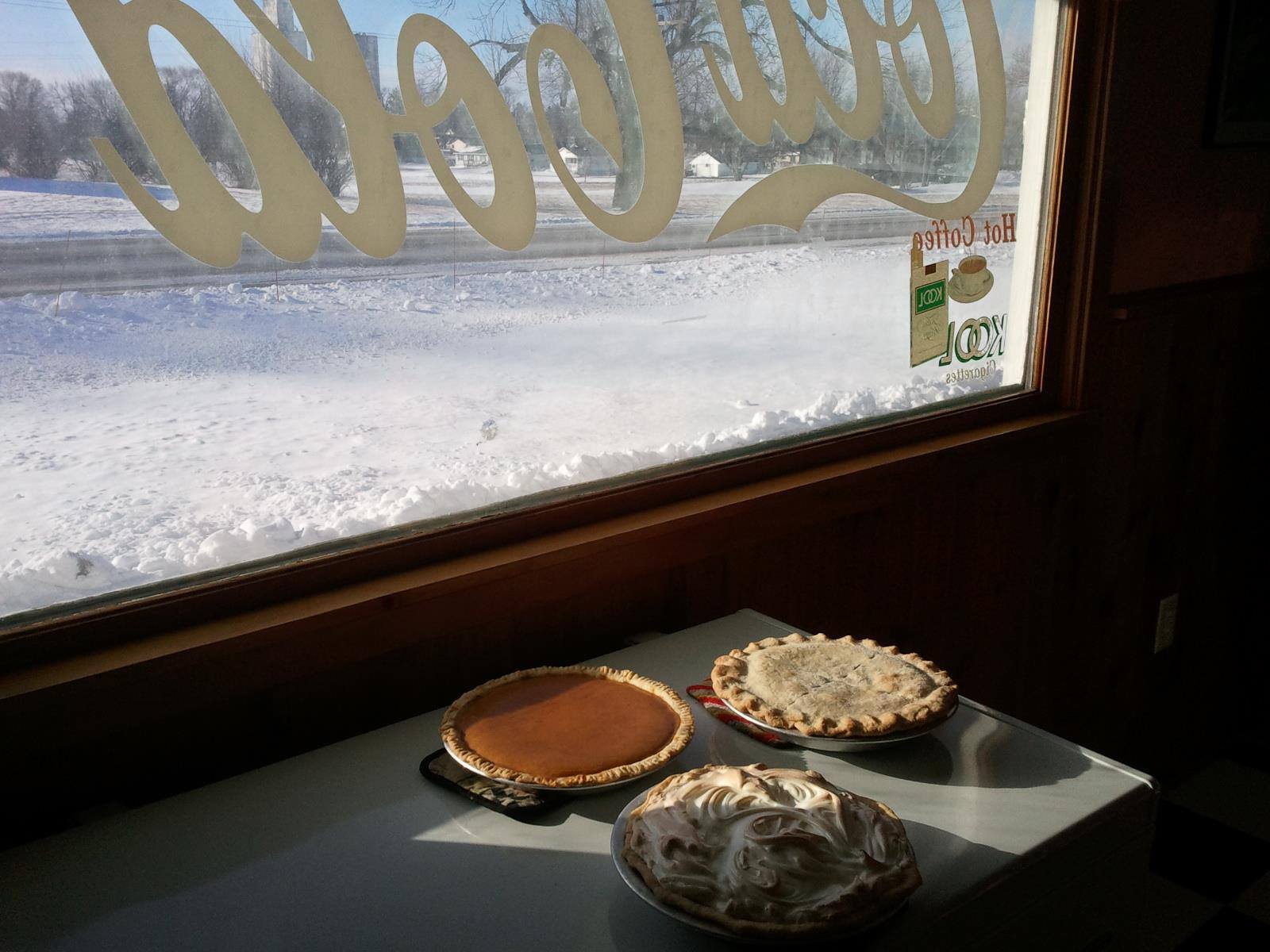
Trackbacks/Pingbacks